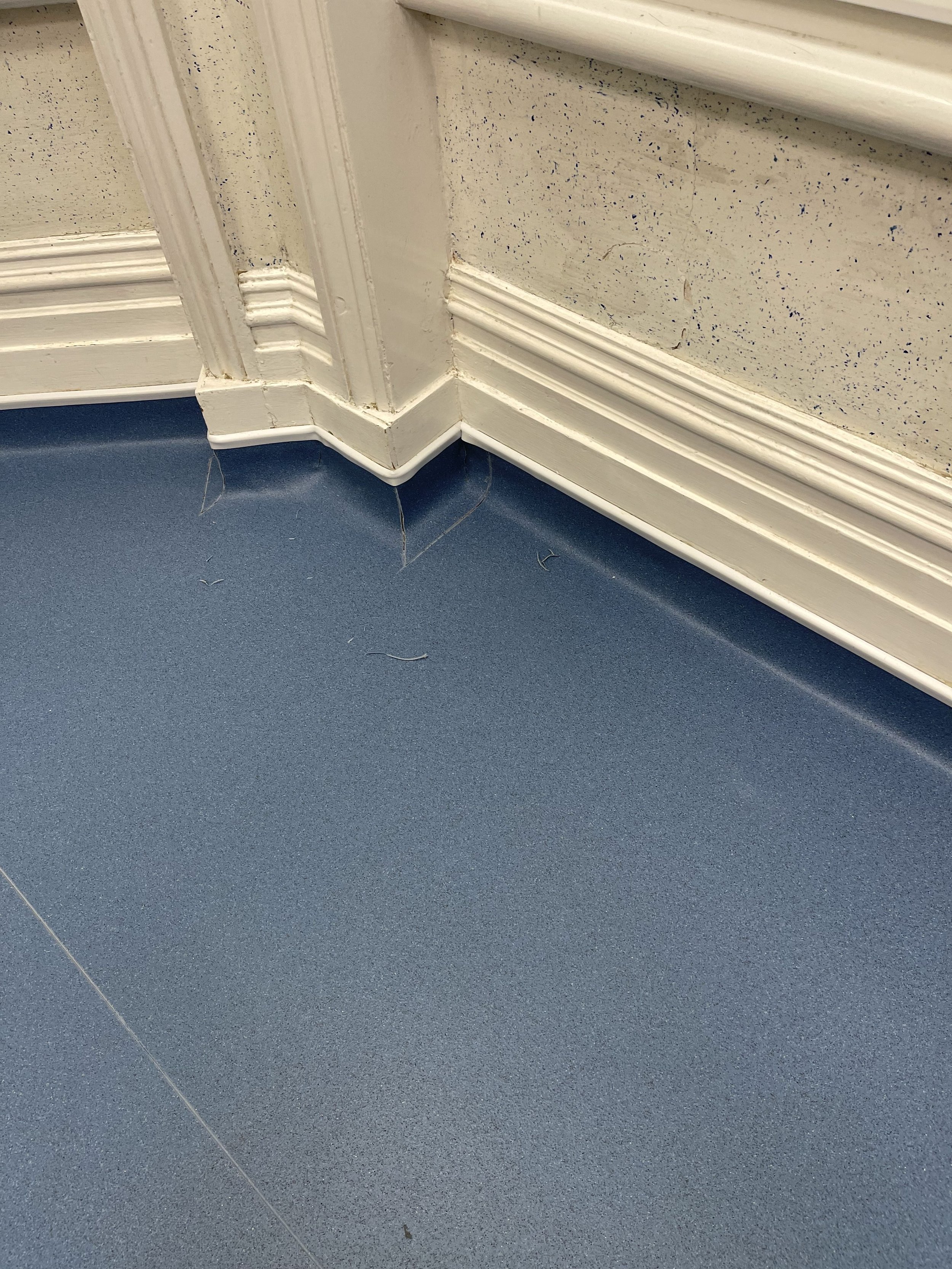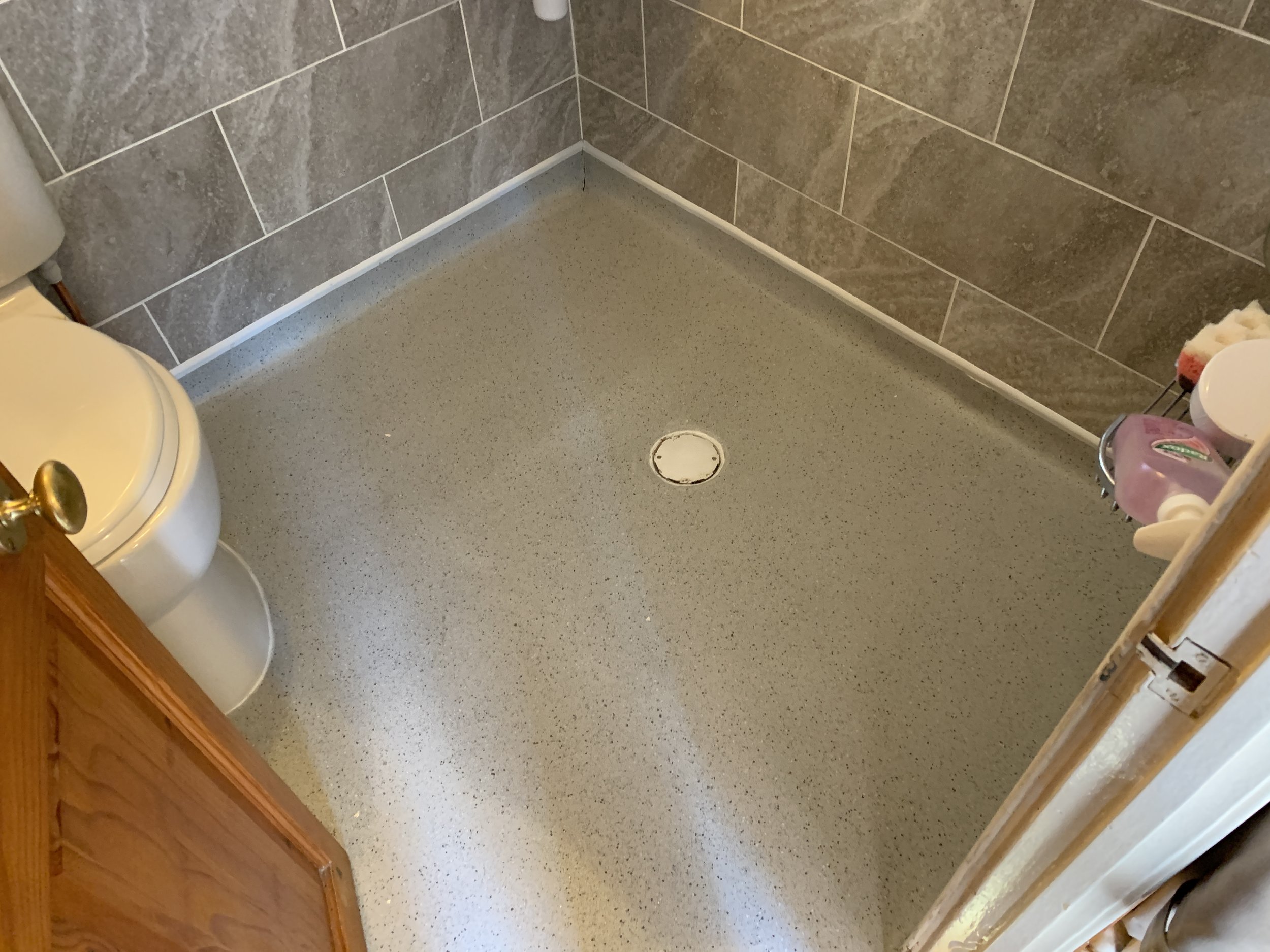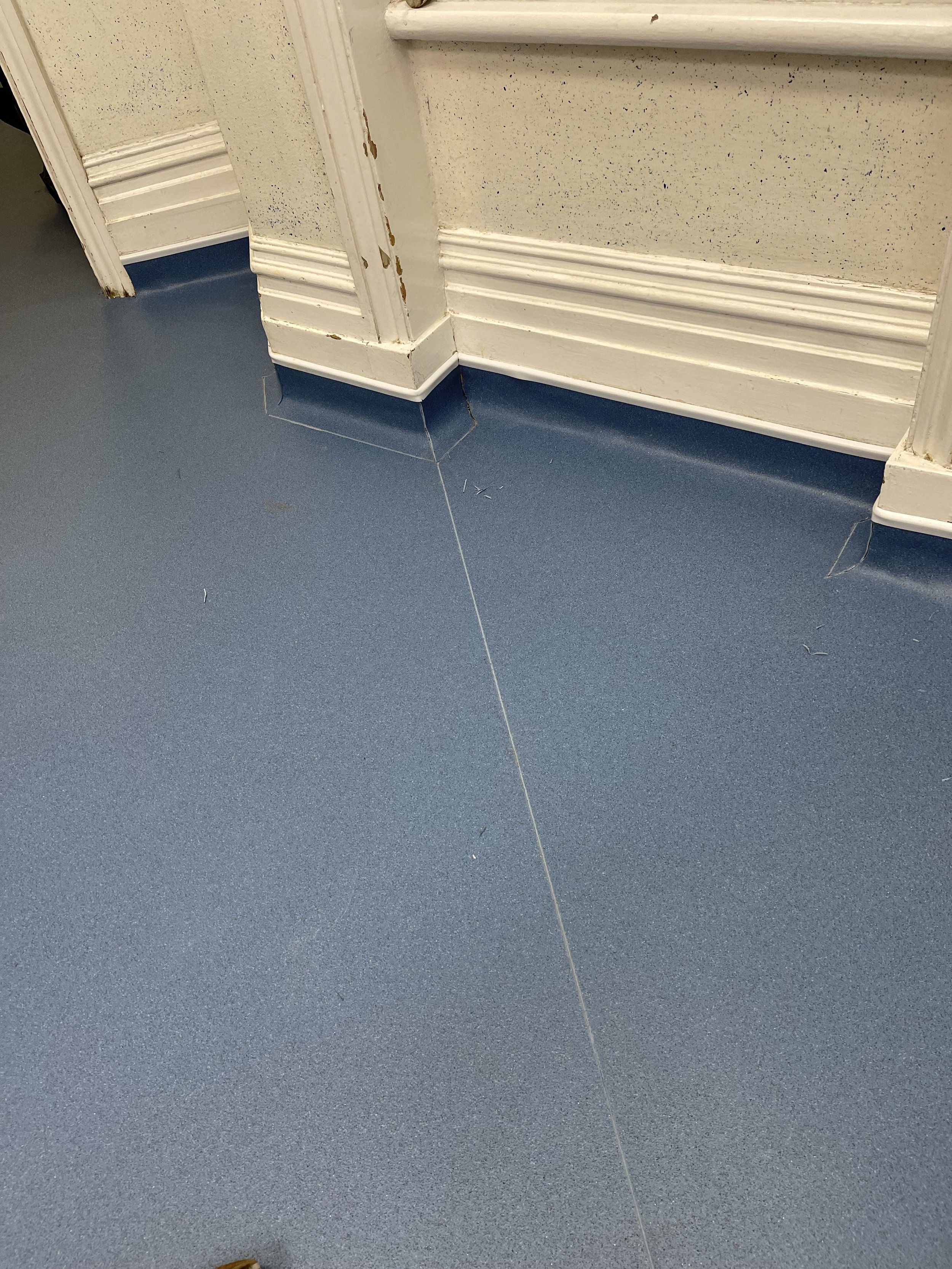Cap and Cove Flooring Explained
Written by
Jack Williams, owner of Crescent Flooring
Published
July 27th, 2023
When it comes to flooring solutions, the choices are diverse and often depend on the specific needs of the space. Among these options, cap and cove flooring, particularly cap and cove vinyl flooring, has garnered attention for its unique characteristics. In this post, we will delve into what cap and cove flooring is, its types, and the pros and cons of this distinctive flooring method.
What is Cap and Cove Flooring?
Cap and cove flooring refers to a unique method of floor covering installation that provides a seamless and hygienic finish. The system consists of two main components – the 'cap' and the 'cove'. The 'cove' is a sheet of flooring material that extends up the wall, usually by 100mm, while the 'cap' is a trim that neatly covers the joint where the floor and wall meet. This flooring system is especially beneficial in areas where cleanliness and hygiene are paramount, such as bathrooms, commercial kitchens, and healthcare facilities.
Cap and cove flooring is not only a functional flooring solution but also a practical choice for a variety of businesses:
Healthcare facilities. Its hygienic and easy-to-clean properties make it a preferred choice for healthcare facilities such as GP surgeries, dental clinics, and hospitals, where maintaining a sterile environment is crucial.
Hospitality and restaurants. It's also advantageous in industries such as food service and hospitality, where cleanliness is a top priority. Commercial kitchens, restaurants, and hotel bathrooms can all benefit from the seamless and waterproof nature of cap and cove flooring.
Schools. Educational institutions and childcare centres, where spills and accidents are commonplace, can also find this type of flooring to be a practical and durable solution.
Offices. Even corporate settings such as offices or retail spaces can opt for cap and cove flooring for its sleek, professional look and easy maintenance.
Cap and cove flooring can be executed with various materials, but cap and cove vinyl flooring is a popular choice due to its durability and ease of maintenance. The vinyl material used is typically resistant to moisture and easy to clean, making it ideal for spaces exposed to water or heavy foot traffic.
The cap and cove trim plays a crucial role in the system. It is designed to create a smooth, uninterrupted transition between the floor and the wall, helping to ensure the space is kept as clean and hygienic as possible.
Pros and Cons of Cap and Cove Flooring
One of the key advantages of cap and cove flooring is its seamless finish that leaves no corners or edges for dirt or bacteria to accumulate. This makes cleaning much easier and helps maintain a high standard of hygiene. Cap and cove vinyl flooring is also water-resistant and durable, making it a great option for areas prone to spills or heavy use.
The aesthetic appeal of this flooring system is another significant benefit. The smooth transition from floor to wall created by the cap and cove trim provides a clean, professional look that can enhance the overall ambiance of a space.
While cap and cove flooring has many benefits, there are a few considerations to keep in mind. Installation can be slightly more complex compared to traditional flat lay flooring, requiring skilled installers for a flawless finish. This can potentially increase the cost of installation. Furthermore, although cap and cove vinyl flooring is durable, sharp objects or heavy equipment can cause damage, requiring repair or replacement of the affected area.
In conclusion, cap and cove flooring, with its focus on cleanliness, hygiene, and aesthetic appeal, offers an excellent solution for specific spaces. By understanding the unique features of this flooring system, you can make an informed decision about whether it's the right choice for your project.
See examples of our cap and cove projects
Below is a small selection of the cap and cove projects we’ve completed.




Cap and Cove FAQs
Q: What is the cost of cap and cove flooring compared to other flooring options?
A: The cost varies depending on material and installation complexity. At Crescent Flooring, we aim to offer cost-effective solutions that cater to our clients' budgets.
Q: How long does cap and cove flooring typically last before needing replacement?
A: With proper care and maintenance, cap and cove flooring can last many years. It's a durable and cost-effective choice in the long term.
Q: What is the process of installing cap and cove flooring?
A: Installation involves preparing the subfloor, laying the floor material, bending it up the wall (the 'cove'), and then adding the 'cap' or trim at the base of the wall. It requires professional expertise for a seamless finish.
Q: How do I maintain and clean cap and cove flooring?
A: General maintenance involves regular sweeping and mopping. Due to its seamless nature, cap and cove flooring is relatively easy to clean and doesn’t allow for dirt accumulation in crevices.
Q: Can cap and cove flooring be used in residential properties or is it just for commercial spaces?
A: While common in commercial spaces, cap and cove flooring is also suitable for residential properties, particularly in areas such as kitchens and bathrooms due to its water-resistant nature.
Q: What is the environmental impact of cap and cove flooring?
A: The environmental impact varies by material. We aim to source sustainable materials where possible, and the long lifespan of cap and cove flooring can also contribute to its sustainability.
Q: Are there specific brands or manufacturers of cap and cove flooring that are recommended?
A: At Crescent Flooring, we work with a variety of trusted suppliers to provide high-quality cap and cove flooring options for our clients.
Q: Can cap and cove flooring be installed over existing flooring or does the old flooring need to be removed first?
A: This largely depends on the condition of the existing floor. In some cases, it's possible to install over the top, but often old flooring will need to be removed for the best result.
Q: Is cap and cove flooring suitable for rooms with high moisture levels, like bathrooms or basements?
A: Yes, the water-resistant properties of cap and cove flooring make it an excellent choice for areas with high moisture levels.
Q: What are the best practices to prevent damage to cap and cove flooring?
A: Regular cleaning, using appropriate cleaning products, and avoiding dragging sharp or heavy objects across the floor can help prevent damage.
Q: Can I install cap and cove flooring myself, or should I hire a professional?
A: While it's possible to do a DIY installation, professional installation is recommended to ensure a flawless finish and longevity of the flooring.
Looking for cap and cove flooring?
If you’d like a free, no-obligation quote for your own flooring project, click the button below and fill in our contact form. We’ll be in touch within 48-hours.
If you’d prefer, you can also email jack@crescentflooring.co.uk or call 07814 410413.
